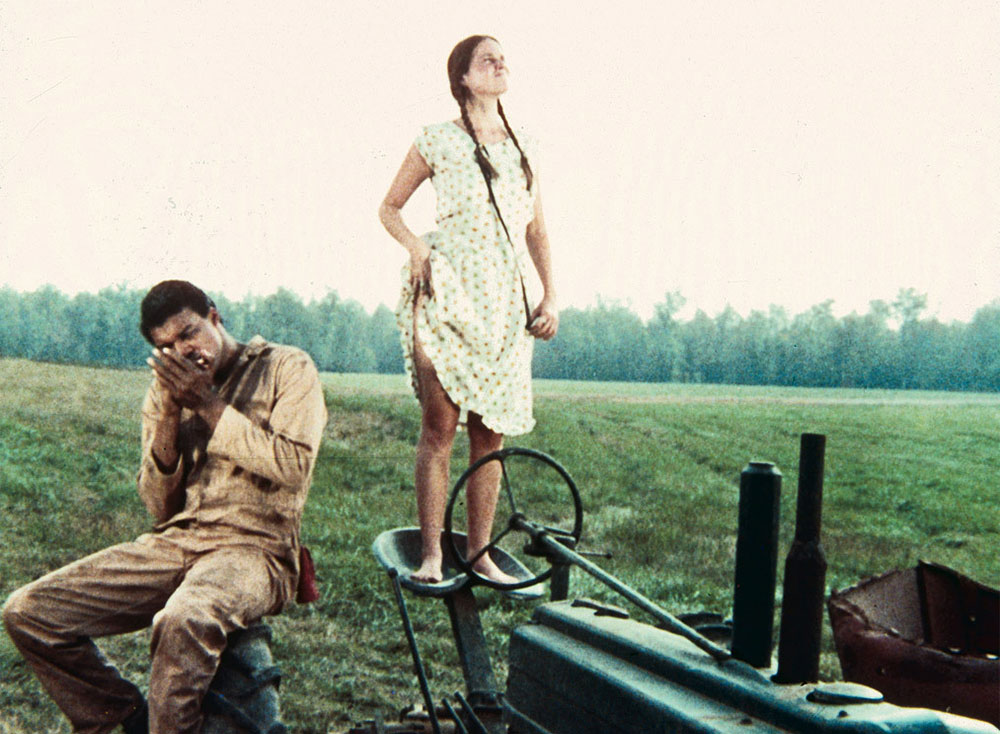Produced by Roger Corman and loosely based on Ben Reitman’s Sister of the Road, Martin Scorsese’s Boxcar Bertha (1972) is his take on a traditional Western. There are bandits and brothels, but there are also Yankees and biblical metaphors. It traffics in a loose genre that I’d call ‘70s-does-30s, alongside films like The Sting (1973) and The Last Tycoon (1976). Like the interwar period of the 1930s, the 1970s in the United States was a decade fraught with economic insecurity and political nihilism. Boxcar Bertha does not portray the Great Depression as a sentimental and distant event from the past, but as a decade of general inertia. Its characters and settings are signifiers of the Depression-era South, but the listless, cool attitude in the film is purely ‘70s.
Boxcar Bertha looks like the kind of film you’d watch on a CRT TV in your grandparents’ wood-paneled basement. Its opening credit sequence features superimpositions of the main characters’ faces with flashy banners proclaiming their names, like an episode of The Lone Ranger. Bertha (Barbara Hershey) herself also begins the film as a sweet little stereotype, a babe-in-the-woods, or perhaps a babe-in-the-hay is more apt. When her father is killed in front of her, she becomes an itinerant train-hopper, committing petty theft with her union-organizer lover Big Bill (David Carradine).
But Bertha is not a one-dimensional Southern belle. It’s striking how she exists as the only woman in a land full of men; it is as if there had been a gender-based mass extinction. There’s a target on her back, but she’s just as gun-slinging as the men who pursue her, and she does it all in a floral house dress. She takes advantage of the fact that men perceive her as incompetent simply by virtue of being young and feminine. In one scene, she strategically rolls her skirt up her thigh while a cop helps “fix” her car, enabling Bill and his harmonica-playing friend Von to escape from a labor camp. She even tells the cop to close his eyes before shoving the barrel of her gun into his open mouth.
The South is not Scorsese’s traditional milieu, and he can’t resist endowing each character with a lazy sense of style and glamor. He even sprinkles in a Yankee gambler, Rake Brown (Barry Primus), who feels like a proxy for Scorsese because of his traditional New York accent. Bertha and her gang perform stick-ups easily and often, doing long division by hand to split their winnings. Even when they rob an entire dinner party there is no resistance. For a Scorsese film, the violence feels oddly weightless and comic.
That is, until the final scene, which is so sobering that the previously lackadaisical attitude dissolves into genuine tragedy. Bertha, who has been working in a brothel to support herself after the forced disbandment of the group, coincidentally reunites with Von. He brings her to Bill, now a traumatized shell of his former self. As soon as they embrace, they’re swarmed by cops. Bill is then crucified, his wrists nailed with railroad spikes to the side of a train. It’s as if Scorsese can’t resist a nod to his Catholic upbringing. As she sprints after the moving train, Bertha personifies Mary Magdalene, clutching at Bill’s dangling body and shouting, “Don’t take him!”
Boxcar Bertha screens tonight, April 2, at Nitehawk Prospect Park on 35mm as part of the series “Misfit Alley.”



